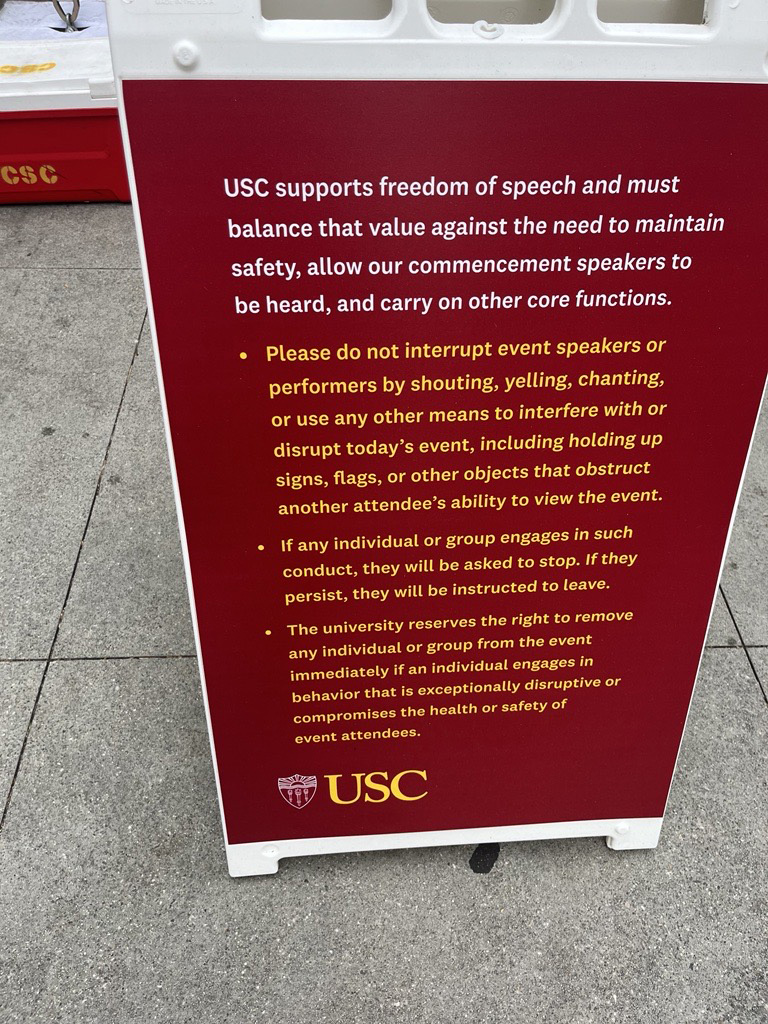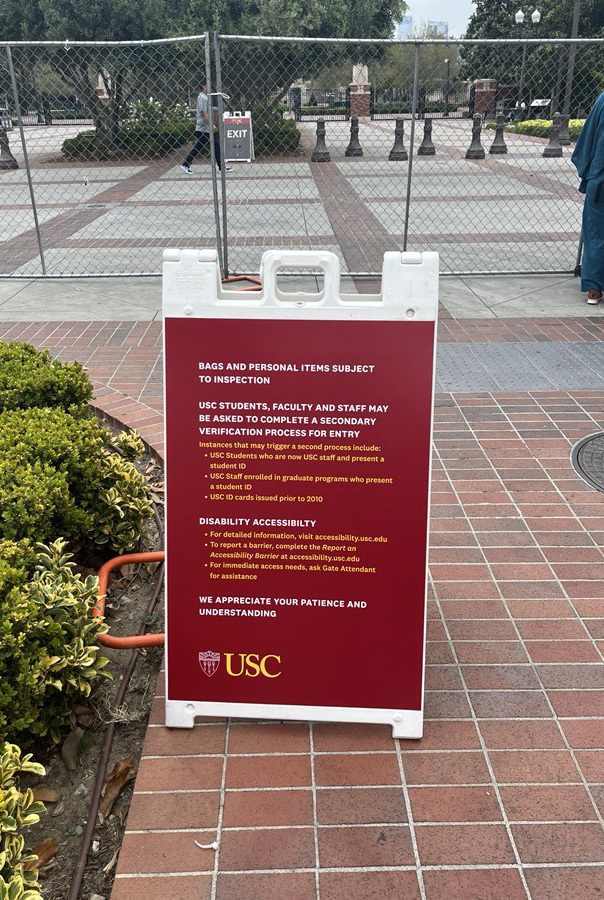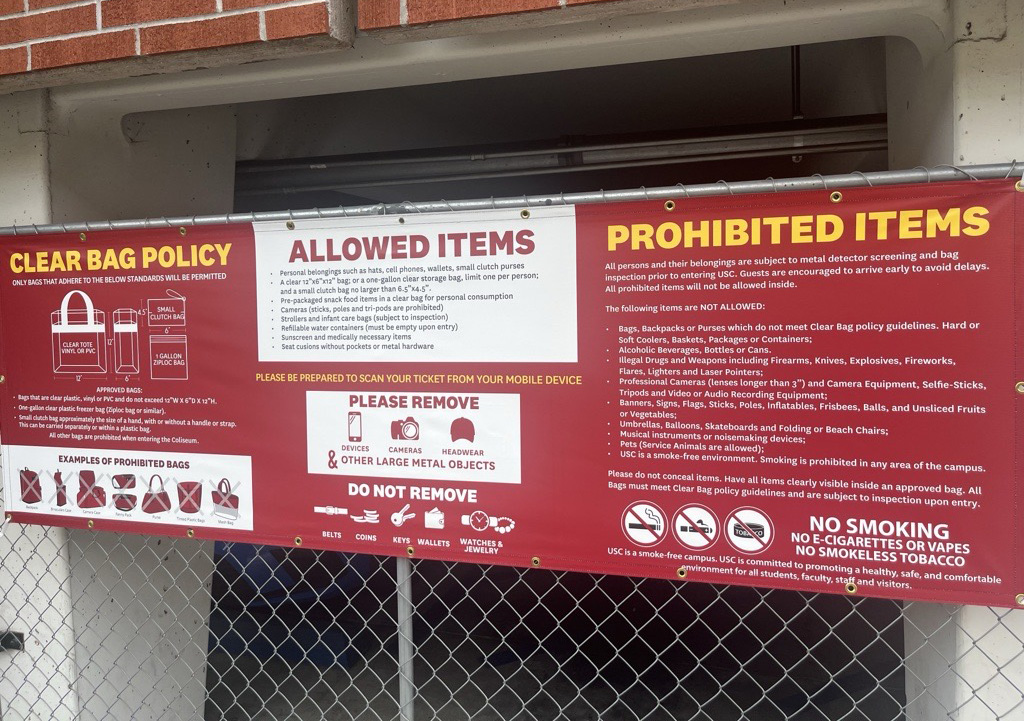Statement in solidarity
with student encampments and peoples subjected to genocidal violence
On a square at a large, private university in California, where two encampments took place that the university ordered to clear to make space for the commencement, a stand-up display reads:
“USC supports freedom of speech and must balance that value against the need to maintain safety, allow our commencement speakers to be heard, and carry on other core business.”
Counter to that commitment to speakers being heard, the university had some days earlier barred the valedictorian from speaking at the ceremony. The school cited potential campus safety risks if Asna Tabassum was allowed to deliver her speech. “The intensity of feelings, fueled by both social media and the ongoing conflict in the Middle East, has grown to include many voices outside of USC and has escalated to the point of creating substantial risks relating to security and disruption at commencement,” provost Andrew Guzman wrote in a statement. In the best imaginable scenario, this statement acknowledges that many ‘Western’ universities cannot guarantee for the safety of their staff and students—despite their very obvious ability to deploy police and military grade security to sweep the campus of life. The course of events at USC and on campuses worldwide, however, suggests that the commitment to free speech is sacrificed in the moment when support for the Palestinian cause is on display. The disciplinary actions against students and faculty that voiced their opposition to an ongoing genocide clearly speaks for the latter, as does barring a hijab-wearing, muslim woman from delivering a speech that she imagined to incite hope among her fellow students—also and mainly because she has shown support for the Palestinian cause.
Whether at LA’s second elite university—UCLA—at Humboldt University and The Free University of Berlin, the University of Amsterdam or at the University of Basel in the city where we normally stand, those in charge of institutions that would publicly advocate for learning, critique, debate, and inclusion have vouched to inflict violence on those that have reminded these institutions of their commitment. The students demands were met with offers for “constructive dialogue” after and if the students agree to vacate public space, which is a setting that cements the hierarchy between those who purportedly speak in the name of neutrality and objectivity, and those who advocate a cause that demands more than hollow statements. However sincere the offers for dialogue by university admins are or were in the first place–and the chain of events doesn’t inspire any confidence—it constitutes an infantilization of those who understand that every speech act is political, and it bases any conversation on an opposition between the now vacated and mute institution and those who would typically fill it with life—also if they speak with an angry voice.
Our most important commitment in teaching and research is an unwavering support of our students and the creation of an atmosphere of learning that addresses the needs and concerns of everyone involved. This is what students in encampments around the world have tried to save—not for the sake of protest against the institution but due to the blanket silence they had to, and often have to, endure. We want to learn together, and we want to learn from those who do the hard labor on the ground, fighting injustices in the labor market, deadly logistics and border regimes, imperialist wars and colonization, racialization, anti-semitism, and anti-Muslim, and genocidal violence inflicted on the people of Palestine, Sudan, the Congo, Ukraine, Armenia, and elsewhere.
Where do you stand, and who do you stand with?


